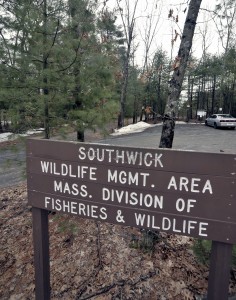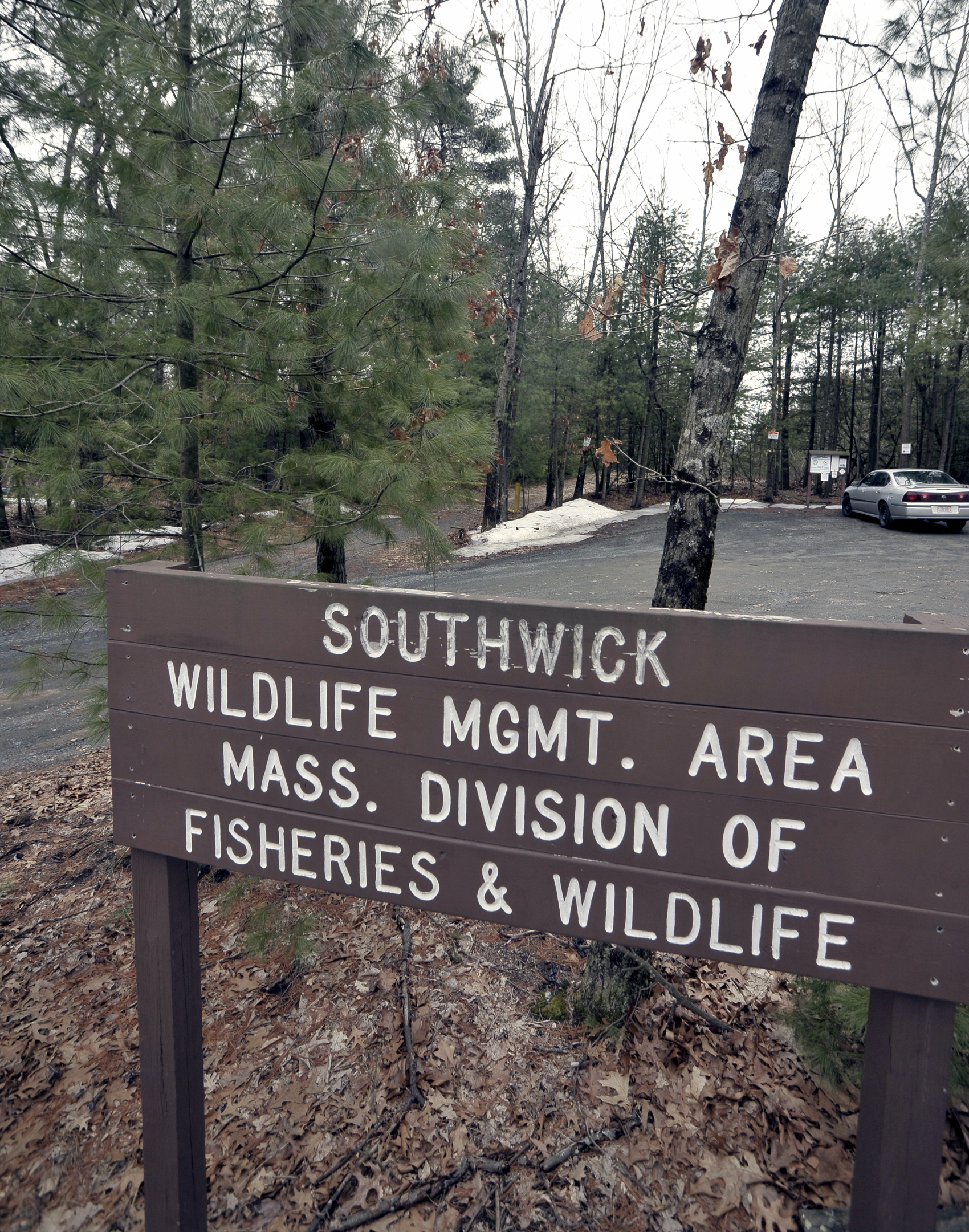SOUTHWICK – On November 29, the Massachusetts Fish and Wildlife announced that new dog regulations at wildlife management areas throughout the state will go into effect on January 11.
While the Division of Fisheries and Wildlife (MASSWILDLIFE) noted that dogs are still welcome on all wildlife management areas, dog handlers need to comply with the new leash and waste disposal regulations. The regulations are as follows:
– Dogs and other domestic animals must be on a physical leash/tether while on WMAs (wildlife management areas). Leashing dogs decreases conflicts with people and other dogs, resulting in a safer and more positive experience for everyone.
– Dogs may be off-leash only when hunting or hunt-training with licensed hunters under existing regulations, or if they are participating in retriever or bird dog trial events that have been permitted by Mass Wildlife.
– Dog feces in the WMA must be picked up by dog handlers and disposed of offsite. Licensed hunters engaged in hunting or hunt training, and those participating in sanctioned field trials are exempt from this requirement.
– Dog feces in WMA parking areas and within 100 feet of the parking area must be picked up by all dog handlers and disposed of off the WMA.

The Southwick Wildlife Management Area on South Longyard Road will be affected by the new dog regulations set by the Division of Fish and Wildlife. (WNG File Photo)
According to Mass Wildlife, they’ve received several complaints over the years from people using wildlife management areas about unsafe experiences with unleashed dogs or problems with dog waste. The press release also includes the most common complaints in the past:
“The most common complaints included: dog attacks and bites on other dogs (both off- and on-leash) and people, and piles of accumulating dog waste: a nuisance and health concern for pets, people, and wildlife. Other incidents and complaints from WMA users involved: user conflicts between loose dogs with hunters, birders, field trial dog participants, naturalists and hikers; observations of dogs harassing or chasing wildlife; dogs chasing or killing livestock on abutting property; chasing/harassing neighboring property owners and families; dogs spooking horses, resulting in injuries to riders or horses; dogs trampling through posted endangered species restoration projects or newly planted agricultural crops.”
While the new regulations affect approximately 200,000 acres of wildlife management areas throughout Massachusetts, Southwick has 265 acres of wildlife management area on South Longyard Road.
Southwick is not immune to complaints about improper activity at their local wildlife management area. Even though there was fencing and signage at the area, about two years ago Mass Wildlife employees observed dogs wading and swimming in a vernal pool that is strictly used for Spadefoots. An endangered amphibian, Spadefoots use the vernal pool during their metamorphosis stage.
Despite the new regulations, Mass Wildlife still wants people to allow their dogs to enjoy the wildlife management areas responsibly.
“As these regulations go into effect, Mass Wildlife looks forward to continuing to welcome dogs and their owners to wildlife management areas across the state, while ensuring a safe and enjoyable outdoor experience for all visitors and fulfilling its mission to conserve the commonwealth’s wildlife and wildlife habitats,” said Katie Gronendyke, the spokeswoman for Mass Wildlife.
According to Mass Wildlife, the new regulations were created after the Fisheries and Wildlife Board made their decision during a public hearing on March 14, 2018.


